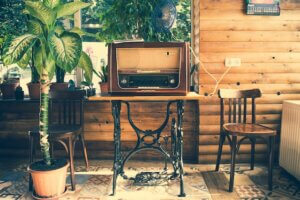Eco-friendly Approaches to Deceased Estate Cleaning
Eco-friendly Approaches to Deceased Estate Cleaning
Summary
Eco-friendly approaches to deceased estate cleaning prioritize environmental responsibility. Using green, biodegradable cleaning products prevents ecosystem harm. When disposing of items, it’s essential to reduce waste, reuse where possible, and recycle appropriately. Donating plants and gardens supports biodiversity, while digital archiving reduces environmental impact. Estate sales or auctions redistribute valuable items sustainably. Energy-efficient practices and open communication with stakeholders further promote sustainability. Non-recyclable items should be handled with care. Overall, embracing eco-friendly methods in deceased estate cleaning honours the departed and protects the environment for future generations.
In today’s world, the environment is at the forefront of our decision-making. As we navigate the challenging process of deceased estate cleaning, considering eco-friendly approaches not only pays tribute to the deceased but also upholds our responsibility towards the planet. Here, we detail comprehensive strategies for sustainable deceased estate cleaning.
Incorporating Green Cleaning Products into Deceased Estate Cleaning
The use of green cleaning products is paramount. Conventional cleaners contain harsh chemicals that can have detrimental effects on our ecosystem. Opting for biodegradable, non-toxic cleaning agents ensures a safer environment for both the cleaners and the planet.
Mindful Disposal: Reduce, Reuse, Recycle
It’s essential to adopt a three-pronged approach when disposing of items from the estate:
Reduce: Limiting waste begins by thoughtfully determining what truly needs to be discarded.
Reuse: Many items can find a second life. Think of donating furniture, clothing, and other usable items to charities, shelters, or community centres.
Recycle: Be it paper, metal, or glass, ensure items are properly segregated and sent to appropriate recycling facilities.
Rehoming Plants and Gardens
The deceased may have owned plants or maintained a garden. Instead of uprooting them, consider donating them to local schools, community gardens, or neighbours. Plants not only serve an aesthetic purpose but also contribute significantly to the environment by purifying air and supporting biodiversity.
Digital Archiving Over Physical Storage
Personal documents, photographs, and letters can be digitized and stored electronically, minimizing the need for physical space, and reducing the environmental impact. This process ensures that memories are preserved indefinitely and can be easily shared among family and friends.
Estate Sales and Auctions: Sustainable Redistribution
Hosting estate sales or auctions facilitates the redistribution of valuable items, ensuring they continue to be used and cherished. It’s an eco-friendly alternative to discarding and offers financial benefits too.
Energy Efficiency during the Deceased Estate Cleaning Process
While undertaking deceased estate cleaning, ensure all electrical appliances, lights, and other utilities are turned off when not in use. Where possible, use energy-efficient devices and opt for natural lighting during the day to reduce the estate’s carbon footprint.
Educating and Collaborating with Stakeholders
It’s crucial to ensure that all involved in the deceased estate cleaning process, from family members to hired professionals, are informed about the importance of eco-friendly measures. Open communication fosters a collaborative effort, making the entire process more sustainable.
Dealing with Non-recyclable Items
Certain items may not fit into the typical recycling paradigm. For these, consider specialized recycling facilities or eco-friendly disposal methods that ensure minimal environmental harm.
In conclusion, while deceased estate cleaning is inherently an emotionally taxing process, the incorporation of eco-friendly strategies can offer solace. By choosing sustainability, we not only honour the memory of the deceased but also extend respect to the environment. By integrating these eco-friendly practices, we take a step towards leaving a better world for future generations.
FAQs
What is deceased estate cleaning?
Deceased estate cleaning refers to the comprehensive process of sorting, cleaning, and preparing a property after the passing of its owner. This process often involves removing personal belongings, deep cleaning the property, and sometimes making minor repairs to prepare the house for sale or the next occupant.
How long does the deceased estate cleaning process usually take?
The duration varies based on the size of the property, the volume of belongings, and the specific requirements of the family or executor. It can take anywhere from a couple of days to several weeks. It’s essential to work with a professional cleaning service that can provide a time estimate after assessing the property.
How are personal items and valuables handled during the cleaning process?
Items of sentimental or monetary value are often set aside for family members or executors to review. Many cleaning services will work closely with families to ensure that personal belongings are treated with care and respect. Items can be categorized for keeping, donating, recycling, or disposal based on the family’s wishes.
Is it necessary to hire professionals for deceased estate cleaning?
While it’s not mandatory, hiring professionals can significantly ease the process. Expert cleaners understand the emotional and physical challenges of clearing a deceased estate and can handle tasks efficiently and sensitively. They also have the necessary equipment and knowledge to clean and restore the property to its best condition.
Can items from the estate be donated or recycled?
Yes, many cleaning services offer eco-friendly disposal solutions. Items in good condition can be donated to charities or local community organizations. Meanwhile, items like paper, metal, and glass can often be recycled. It’s a sustainable way to manage belongings and reduce the environmental impact of the cleaning process.
Why Choose AllAces?
Deceased estate cleaning can be an extremely time-consuming and challenging undertaking for family members and friends, especially during this emotional time. AllAces Cleaning & Restoration has more than 35 years of industry experience, handling a vast variety of deceased estate cleaning services across Brisbane, Sydney, Melbourne, and surrounds. Our IICRC-certified technicians work with empathy and professionalism to ensure a genuine and reliable service every time.



